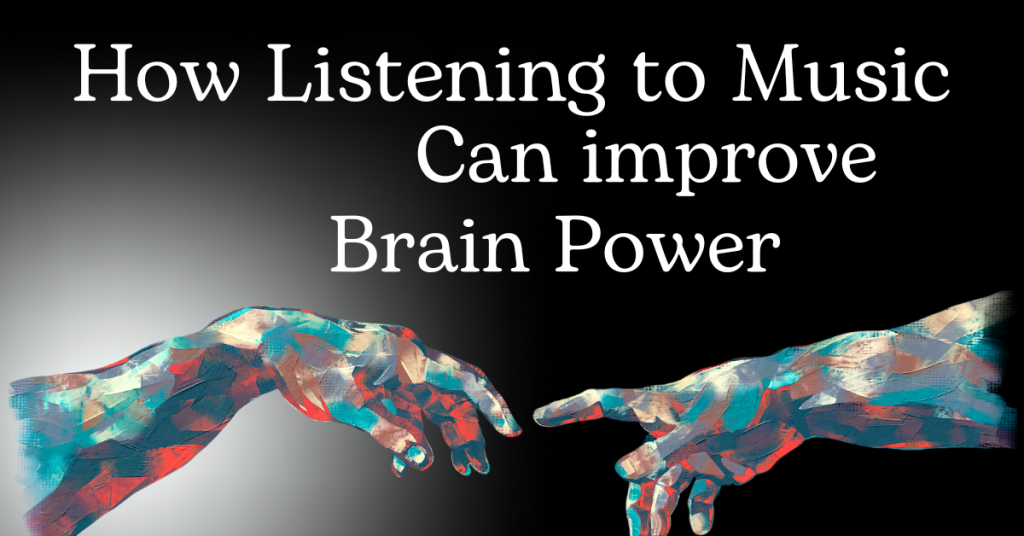Introduction
In today’s fast-paced world, where cognitive demands are high and distractions abound, optimising brain power is essential for success and well-being. One often overlooked yet highly effective method for enhancing brain function is through the simple act of listening to music. This article delves into the scientific rationale behind how music improves brain power and provides practical tips for leveraging this powerful tool.
The Science Behind Music improves Brain Power
Music has a profound impact on the brain, triggering complex neurological processes that affect various cognitive functions. Studies have shown that listening to music stimulates the release of neurotransmitters such as dopamine and serotonin, which are associated with mood regulation and pleasure. Additionally, music activates multiple areas of the brain, including those responsible for auditory processing, emotion, and memory.
Research findings consistently demonstrate the link between music and brain power, with evidence suggesting that regular exposure to music can improve cognitive abilities such as attention, memory, and problem-solving skills. Moreover, musical training has been shown to enhance brain plasticity, the brain’s ability to reorganise and adapt in response to new experiences.
Enhanced Concentration and Focus
One of the most notable benefits of listening to music is its ability to enhance concentration and focus. Certain types of music, such as classical or instrumental pieces, have been found to promote a state of heightened alertness and attention, making them ideal for tasks that require sustained mental effort. By creating a stimulating auditory environment, music can help block out distractions and improve productivity.
To maximize the concentration-boosting effects of music, individuals can experiment with different genres and tempos to find what works best for them. Some may prefer soothing instrumental music for tasks that require deep focus, while others may find that upbeat rhythms enhance their motivation and energy levels.
Memory Improvement
Music has long been recognized for its powerful influence on memory. Research suggests that listening to music can aid in both the retention and recall of information by activating neural networks associated with memory encoding and retrieval. In fact, certain pieces of music have been shown to evoke vivid memories and emotions, serving as mnemonic devices for recalling specific events or experiences.
To harness the memory-enhancing benefits of music, individuals can incorporate music into their study routines or use it as a background accompaniment during activities that require memorization. By pairing information with musical cues, learners can create stronger associations that facilitate memory consolidation and recall.
Emotional Regulation and Stress Reduction
In addition to its cognitive benefits, music plays a significant role in regulating emotions and reducing stress. Listening to music has been shown to elicit a range of emotional responses, from relaxation and tranquility to excitement and euphoria. By modulating mood states, music can help individuals manage stress more effectively and promote overall emotional well-being.
Whether it’s through soothing melodies or rhythmic beats, music has the power to induce a sense of calmness and inner peace. Incorporating music into relaxation techniques such as meditation or deep breathing exercises can amplify its stress-relief effects, providing a natural antidote to the pressures of daily life.
Brain Plasticity and Musical Training
The concept of brain plasticity refers to the brain’s remarkable ability to adapt and reorganise in response to learning and experience. Musical training, in particular, has been shown to induce structural changes in the brain, leading to enhanced neural connectivity and function. Studies have found that musicians exhibit differences in brain structure and function compared to non-musicians, including greater grey matter volume in areas associated with auditory processing, motor skills, and executive function.
The cognitive benefits of musical education extend beyond musical proficiency, influencing a wide range of cognitive domains such as language, mathematics, and spatial reasoning. Moreover, research suggests that the effects of musical training are cumulative, with early exposure to music conferring long-term cognitive advantages that persist into adulthood.
The Mozart Effect
The Mozart Effect, a phenomenon purported to enhance cognitive abilities through listening to Mozart’s music, has garnered widespread attention since its inception in the 1990s. While early studies suggested a link between Mozart’s compositions and temporary improvements in spatial reasoning, subsequent research has called into question the robustness of these findings.
Critics argue that the Mozart Effect may be attributable to factors such as mood elevation or arousal rather than inherent properties of the music itself. Furthermore, attempts to replicate the original studies have yielded mixed results, casting doubt on the validity of the phenomenon as a reliable method for boosting brain power.
Practical Tips for Maximizing Brain Power Through Music
To harness the cognitive benefits of music, individuals can incorporate the following strategies into their daily routines:
- Create an optimal music playlist tailored to specific tasks or activities, selecting music that matches the desired mood or energy level.
- Experiment with different genres, tempos, and instrumentation to find what resonates best with individual preferences and cognitive needs.
- Use music as a background accompaniment during tasks that require concentration or creative thinking, such as studying, writing, or problem-solving.
- Incorporate music into relaxation and stress












